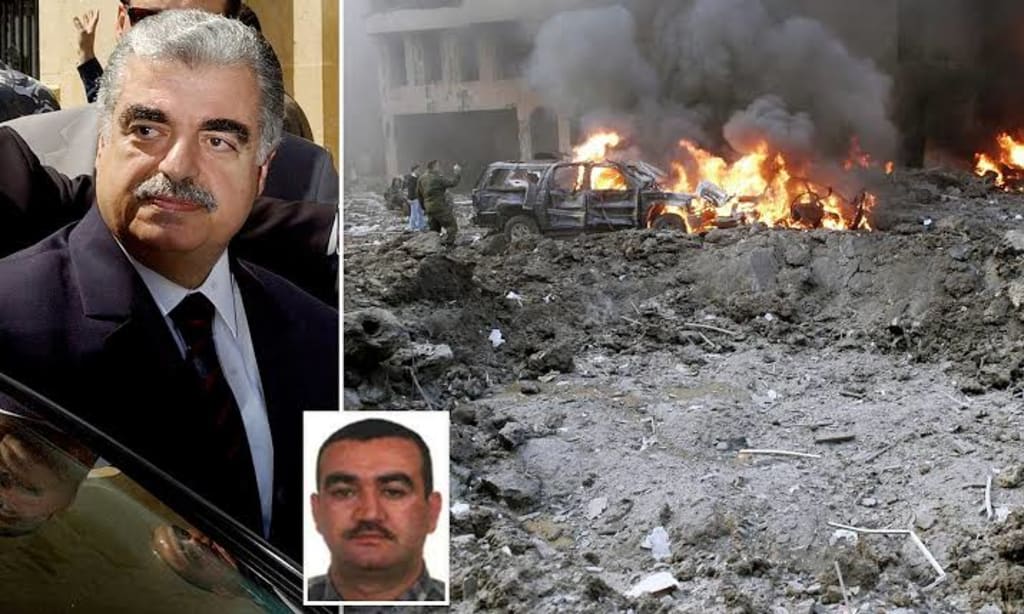Assassination & Legacy: Rafik Hariri
Rafik Hariri, a Lebanese tycoon turned politician, served as Prime Minister twice, focusing on reconstruction and economic development after the civil war.

Rafik Hariri, a prominent Lebanese politician and businessman, rose to international prominence as the former Prime Minister of Lebanon. Born on November 1, 1944, in the coastal city of Sidon, Hariri's life was marked by his significant contributions to Lebanon's political and economic landscape, as well as the tragic manner in which his life came to an end.
Hariri's journey to political leadership began in the 1970s when he moved to Saudi Arabia and established himself as a successful entrepreneur in the construction and real estate sectors. His business acumen allowed him to amass considerable wealth and cultivate influential connections. Following Lebanon's civil war, Hariri returned to his homeland with a vision to rebuild and stabilize the war-torn country.
In 1992, Hariri was appointed as the Prime Minister of Lebanon for the first time. He embarked on an ambitious reconstruction plan known as the "Horizon 2000" project, which aimed to revitalize Lebanon's infrastructure and economy. Under his leadership, Beirut's cityscape underwent a transformation, with the reconstruction of key landmarks and public spaces. However, the project also led to a significant increase in the country's debt, sparking debates about the sustainability of Hariri's economic policies.
Hariri's political career was characterized by a complex web of alliances and rivalries. He maintained close ties with Western governments, particularly France and the United States, which provided him with diplomatic support and financial aid. He also maintained a strong relationship with Saudi Arabia, which contributed to his considerable influence in Lebanese politics.
In 2000, Hariri resigned from his position as Prime Minister due to differences with the Syrian government, which had a significant presence in Lebanon at the time. However, he returned to power in 2000 after Syria's partial withdrawal from the country. His second term as Prime Minister was marked by efforts to modernize Lebanon's economy and infrastructure, while also striving to balance the interests of various religious and political factions within the country.
Tragically, Hariri's life was cut short on February 14, 2005, when a massive car bomb detonated in Beirut, killing him and 21 others. The assassination sent shockwaves through Lebanon and the international community, prompting widespread condemnations and calls for an investigation. The United Nations established the International Independent Investigation Commission (UNIIIC) to probe the attack.
The investigation into Hariri's assassination was complex and politically charged. It eventually pointed towards a sophisticated plot involving various parties, including the Lebanese militant group Hezbollah. The assassination was believed to be a response to Hariri's opposition to Syrian influence in Lebanon and his calls for political and economic reforms.
Hariri's death led to a period of uncertainty and unrest in Lebanon. Mass protests erupted, demanding justice for his assassination and an end to political corruption. The movement, known as the "Cedar Revolution," played a role in the eventual withdrawal of Syrian forces from Lebanon and paved the way for the country's political landscape to evolve.
Rafik Hariri's legacy is a mix of economic development, political maneuvering, and tragedy. His contributions to Lebanon's infrastructure and economy are still evident in the modern skyline of Beirut, yet his assassination serves as a stark reminder of the political volatility that has often defined the region. The pursuit of justice for his murder underscores the challenges of maintaining stability and sovereignty in a country with a history of external interference and internal divisions.





Comments
There are no comments for this story
Be the first to respond and start the conversation.